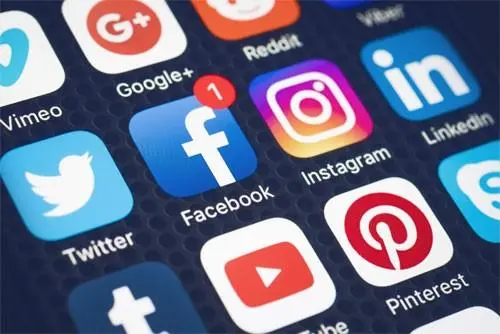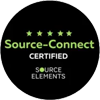Voice over and social media: where, why, how?
A question that often comes up from voice over artists: how can I improve my visibility on social media if I don't yet have much content to share?
 First of all, why do you want to be visible on social media? Isn't that just narcissism? Answer: Yes. Or no. It all depends on how you use them. You can, of course, claim to be a self-proclaimed guru, the best in the universe, the icing on the cake, whatever. Or post videos of kittens. Or both.
First of all, why do you want to be visible on social media? Isn't that just narcissism? Answer: Yes. Or no. It all depends on how you use them. You can, of course, claim to be a self-proclaimed guru, the best in the universe, the icing on the cake, whatever. Or post videos of kittens. Or both.
But as a French voice actor(or any nationality, really), you can also use them in a less egotistical (and less cute, kittens being really cute anyway) way; they're free media (well, paid for with our data, but that's another subject) that allow us not only to show our work to potential clients and share information with our colleagues, but also to exchange with professionals in the field to expand our network, broaden our perspective and develop our skills. These are the phpBBs of today - if you don't have the reference, I'm jealous of your youth!
But what else?
Being visible on social media is also good for optimising your website, or SEO (if you don't have a website yet, I can only warmly recommend that you read my article on this subject entitled The Haberdashery Shop Window). Google's algorithm looks for connections and consistency between our website and our social media. If there's an organic, logical relationship between the different sources, that's good points. If not, bad points.
Google's reasoning is simple - and fair: if you don't take the trouble to use the free tools available to you to promote your work, are you taking your business seriously, and as a result, are you really serving your customers in the best possible way? Google's aim is to offer the most relevant answers to searches, and if a potential customer searches for a voiceover artist, Google will favour in its search results the proposals that are most likely to interest these potential customers: professionals who do everything they can to be as visible as possible to their customers, in order to serve them as well as possible.
And if not, the answer to the question visibility vs. content is...?
I'm getting there! My advice: invite colleagues to join your network, with a little word of introduction because why not? Also, once you've accepted your invitation, don't jump on your new contact to ask them for all sorts of things - advice, liking your page, their client list (you'd be surprised what kind of requests you can get...) Your contacts aren't there to be exploited, you're establishing a relationship with them. And relationships take time to build.
How do you do it? Like and comment on your colleagues' posts that interest you and, extremely important: share the work or content they post that inspires you (that's what the 'share' buttons are for). I've noticed a very strong resistance to sharing colleagues' posts on social media. It costs us nothing and only takes a few seconds, so why? Is it laziness, or a fear of putting someone else in the spotlight? Whatever the case, I strongly advise you to share: it can only be good for you.
And don't forget to express your gratitude when colleagues share your posts by commenting (and not just by liking): they've taken the trouble to repost you, so the least you can do is thank them, right?
Reciprocity is the key word, but don't wait for someone to share your work before sharing theirs - it's not a question of give and take. Make the first move, and don't be offended if they don't return the favour straight away. Rest assured that you have made a positive impact and that you may have helped someone. Set yourself the goal of helping more than you ask for help. It will make you want to do more and more.
Also share relevant content that might be of interest to your colleagues. What content, you may ask? It could be articles from my voice over blog (as my grandmother used to say, you're never better served than by yourself). warm-up videos from vocal coach extraordinaire Stéphanie Dumouch with whom I have directed voice over workshops, links relating to our profession, sound, voice, equipment, campaigns that have left their mark on you - there's no shortage of subjects. Colleagues may share what you've posted, and it may then be shared again - and that can considerably increase your visibility among your colleagues' networks, and your colleagues' colleagues, and... you get the idea.
In short, nothing very different from what, as a human being who is neither a narcissistic pervert nor a pathological egomaniac, in other words as a socially and interpersonally balanced person, you would do in real life: think of social media as a conversation. Those who talk about themselves and their success, expecting their contacts to like, congratulate and share the content they post, without doing the same with their colleagues, quickly come across as egotists who use others for their own ends.
As for those who post in groups only when they have something to sell (promoting their work, their coaching, saying "look at me, I'm loved, I'm successful"), or when they need help to put together a quote or something else, colleagues generally quickly understand that they're not there to share with the community, but to benefit from it.
Also, be careful what you post. Remember that what goes on the Internet stays there for ever, and that you are judged on what you say - and especially how you say it. Trolls are quickly spotted and who wants to work with a troll?
Another piece of advice: don't give advice on subjects on which you have no confirmed expertise - not to be confused with opinions formed after reading a couple of articles on the web, which, let's face it, we're all guilty of sometimes. There's a lot of nonsense written by so-called experts on acoustics, equipment, rates... Once again, don't hesitate to do a bit of research on these experts, beyond what they say. Some may have the required knowledge, but many don't. We all want to help, but we need to have the necessary knowledge to do so.
Finally: self-promos are necessary and recommended to showcase your work in your profiles and your professional Facebook voice-over page (yes, a professional Facebook page is essential), but not in professional groups. These groups are mainly made up of colleagues who will never be clients, and apart from trying to make yourself look good and convince everyone that you're in demand because you're 'simply the best' (which reeks of desperation or a fragile psychological condition in constant search of validation), there's no point.
OK, but which social media?
During a voice over workshop I was teaching, one of the participants asked me which social networks it would be wise to have a presence on. I told her that Linkedin, Facebook, Instagram and Twitter were a must. To which she told me that the social networks bothered her, and that one would suffice, but which one? My answer: if you want to make it a job that feeds you properly, you have to approach it differently: as a job, that we do every day, in which we invest time, like any other working person. Otherwise, it's a hobby.
As professional voice actors, we do the job we do because we love it of course, but we also work to earn a living, and while our core business is speaking, our business isn't limited to that. Marketing is vital to any profitable business, and social networks - ALL the major social networks - are essential marketing tools today: just look at the digital communications of all the major brands.
Whether we like it or not, we are craftsmen offering a service and marketing is a permanent, ongoing, sustained effort that is an integral part of our work. I talk about this essential subject in the article Voice Over Marketing? Say What?
But why is it good for my business?
By sharing, liking etc. the comments of people with whom you are connected, there is a greater chance that they will share the content you post, which will expose you to people in their network but not necessarily in yours, allowing for tree dissemination. And this shouldn't be underestimated - you don't know who will see or re-share your posts that your colleagues share, and it could reach a potential customer.
What's more, helping others costs nothing apart from a little time, and it's good for everyone's karma, including your own. If you use social media as a one-way street, it will quickly become a dead end. The choice is yours!
Speaking of social media, you can find me on Linkedin, Facebook, Twitter, Instagram, and YouTube, which isn't really a social media as such, but it's also essential.
Thank you for reading this article and if you enjoyed it, put it into practice and share it on your profiles so that your colleagues can benefit too!
I invite you to share your experience here and leave your comments, suggestions or questions. I'll do my best to answer them.
PS: by subscribing to this voice over blog, you will have exclusive access to new articles before they are officially published. It's free so make the most of it, subscribe now !







Write a comment